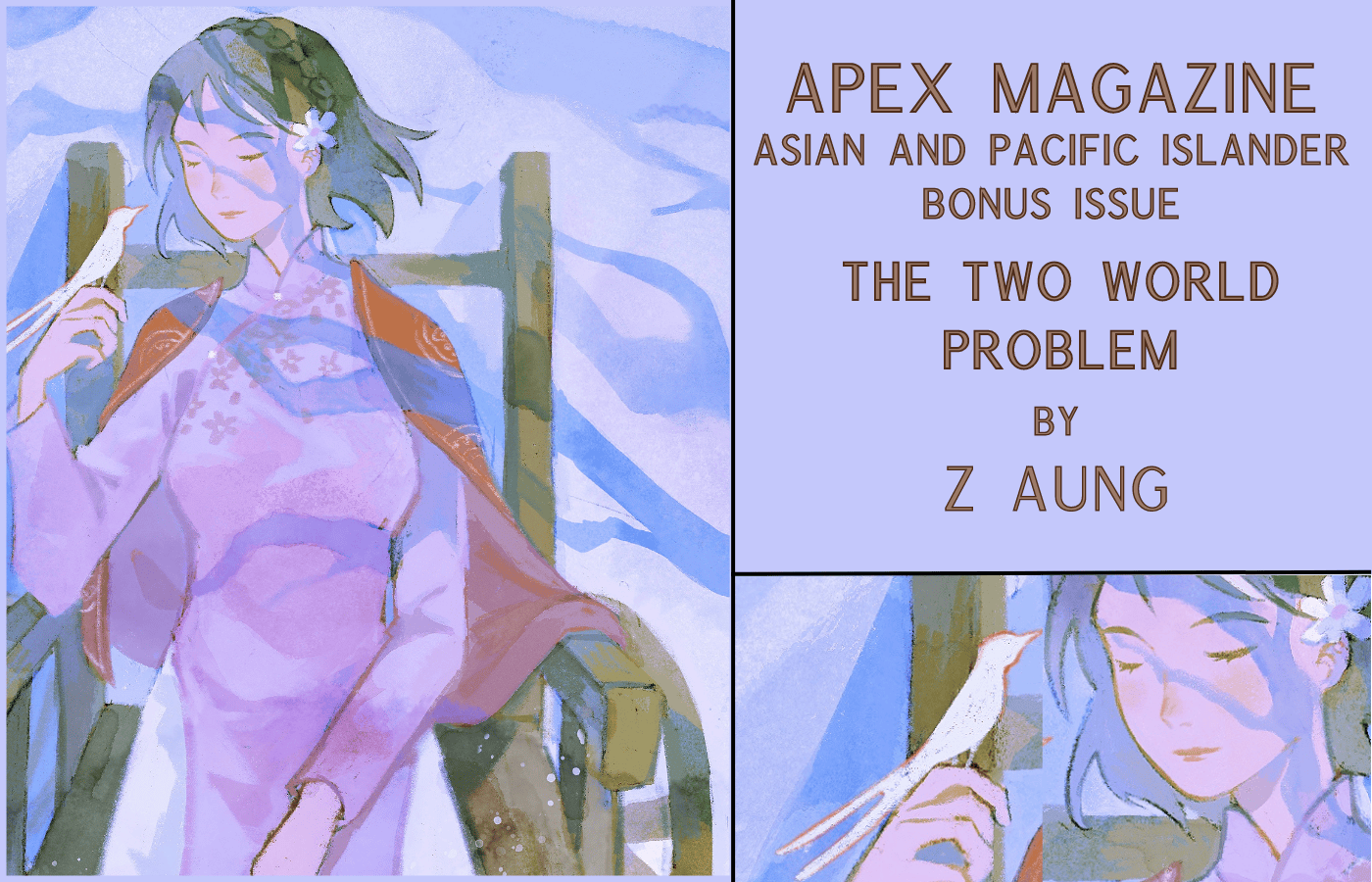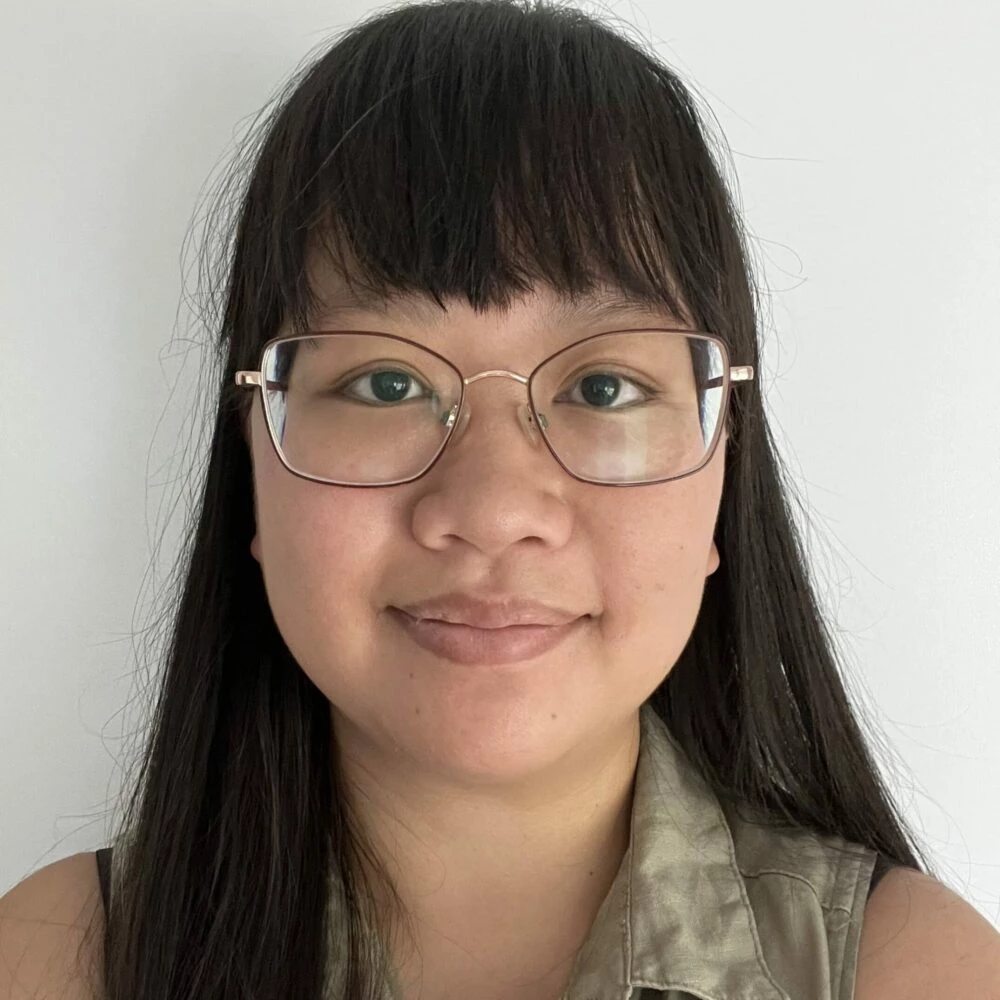
My first introduction to western speculative fiction was in 1995, when I arrived on a little island called Australia. It was, to put it mildly, an overwhelming period, and speculative fiction offered a much needed escape. In short, I was an absolute nerd and devoured whatever books the school and public libraries could offer me.
The Lion, the Witch, and the Wardrobe was not my first fantasy novel, but it is one I remember the most vividly. Despite being the complete opposite of the Pevensie kids—brown, queer, and an immigrant—I found myself identifying with them on a whole new level. And they weren’t the only ones! There was Saul from The House of Many Rooms, Dorothy from The Wonderful Wizard of Oz, and Alice from Alice’s Adventures in Wonderland. To my (only very slight) shame, it took me almost two decades to understand why.
When I arrived in Australia, I lived in a not-very-diverse area, where I was one of three Asian students in a school of a hundred and fifty, and absolutely nothing was familiar. It was in portal fantasy that I found a sub-genre that put into words some of my complex feelings of being an immigrant. Much like the Pevensies, I found myself struggling with an alien language, an alien culture, and even alien weathers.
As a rule, portal fantasies have traditionally had a pro-colonialist slant, with a touch of white saviour complex. Portal travellers used to be confined to the population subset of white boys or men—they were usually cis and straight to boot. The worlds they travelled to were full of exotic others, who needed the help of the portal traveller despite the fact those travellers were ignorant of, well, everything.
As I thought more and more on all the ways I identified with portal travellers, I started to wonder about all the new points of views and meaning that immigrants and diasporans could bring to the genre. After all, who else knew the struggles of trying to survive in an unfamiliar world? Who else could empathise with those portal travellers who felt hopeless as they wondered if they would ever go home, or if home was even something that existed anymore? I hope that by the end of this essay I will have convinced you, dear reader, that immigrants and diasporans have a unique ownership to portal fantasies.
For this essay, I will be dividing the sub-genre further into three plot types:
Finding home: wherein the protagonist stumbles into a different world and the novel is about the journey back to the status quo
Going home: wherein the portal leads to a different world that is home to the unwitting protagonist
Homes colliding: wherein the plot centers around two worlds, typically ‘our’ world and another world colliding together in disastrous ways
Finding home. Well, that’s easy enough. There is the obvious; like that first blush of excitement as you land in a foreign land. To this day I remember walking out of the airport and everything seemed so full of potential. I had my face plastered to the car window, and I am pretty sure I did not shut up the entire trip to our new home. Then came the moment when I realised that I needed to learn the customs of this new land if I wanted to survive. In the books, it’s mad tea parties and screeching playing cards. In real life, it’s having the right accent and the right clothes, and knowing that it was expected of me to bring a cake to school on my birthday. Custom and culture are often inexplicable and unexplained, and ignorance was difficult to hide.
After the first blush of excitement, there was nothing I wanted more than to go back home. Leave this unbearably hot place full of hostile people who would often tell me to go back to where I came from. This desperation is something most immigrants and diasporans know intimately. Interestingly, in most portal stories that desperation seems to last for as long as the shock wears off, then it takes a backseat to the plot. At the end, when the portal world has served its purpose as a setting for the protagonist’s internal journey and the evil is conquered, they go home simply because … it’s home. Not because they need to, not because they crave the familiarity of home, not because the portal world remains hostile to their very existence.
As for me, that need for home was ever present and I wouldn’t get to indulge that need for another seven years, which is as good a segue into the second type of portal stories.
Going home stories often have a protagonist who was always a little different, an outsider in our world. When they finally get to the home they never knew they had, they find out they were always significant, important, and needed. Most importantly, they found a home where they belonged. I loved reading these kinds of portal fantasies because I already knew about this magical home where I belonged: Myanmar.
When I was in grade nine we went back for a visit. Here is where the comparison breaks down. It was hard being back home. Every day I was reminded by my relatives and my own experience that I was very much an Other. I could barely speak the language since efforts at assimilation in Australia meant I only ever spoke English. My cousins had grown up and my grandma had grown old, having had experiences that I would never get to share. There I am too western in exactly the same way I was not western enough in Australia.
Where were the portal fantasies that tapped into the bittersweet nostalgia? With characters too afraid to speak in their birth language because of their accent. Because what sentences they can construct are on the level of a three-year-old’s. Where were the protagonists who started questioning where home truly was if they could not even belong in the place they were born?
Which brings me to the third type of portal fantasies; homes colliding. In such plots there is world A and world B, and for whatever reasons they cannot be linked, nor can the protagonist belong to both worlds. The protagonist must either rebuild the walls between those worlds or choose one in which to live and leave half of themselves behind.
I have never liked those novels. I was a child of both worlds, a gordian knot of different cultures and languages. I couldn’t just divide myself up into discrete halves and decide to be of one world or the other. But society often demands that of us with “speak English, you’re in Australia” and “You’re not really Burmese though if you didn’t grow up there.” In this way our authenticity and sense of self is brought into question over and over again.
Give me portal fantasies that explore these demands. Stories of portal travellers who have to constantly ask themselves if they are truly what they thought they were. Travellers who have to fight to be accepted, some of whom must settle for not being enough of one or the other. Travellers who refuse to give up either heritage and create a new space for themselves. Diversity in speculative fiction isn’t just about stories set in non-western cultures and worlds. Diversity is also about tropes and plot types being subverted, questioned and written by people outside of the accepted canon. Portal fantasy has long been the domain of colonialists, but if there is anyone who truly knows what it is like to step into an alien world, or step back into a family warped by time and distance, it’s immigrants and diasporans. Let’s talk about it, write about it, and make it ours.









